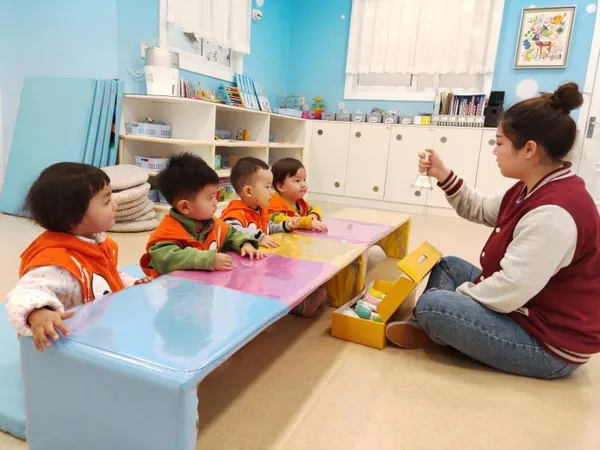Friendships are one of the most fulfilling and essential parts of human life. They provide emotional support, shared experiences, and a sense of belonging. However, as with any relationship, conflicts can arise between friends, sometimes creating tension or even leading to the dissolution of the friendship. Understanding the nature of these conflicts and how to resolve them is crucial for maintaining strong, lasting bonds. This article explores some common conflicts that occur between friends, their underlying causes, and strategies to navigate them successfully.
1. Miscommunication and Misunderstandings
One of the most frequent sources of conflict between friends is miscommunication. In the age of texting and social media, it’s easy for messages to be misinterpreted. A sarcastic remark in a text may come off as rude, or a delayed response may be misread as neglect. These misunderstandings can escalate if not addressed promptly.
How to Resolve:
Clarify the Intent: When confusion arises, it’s essential to ask for clarification. A simple “Hey, I think there was a misunderstanding—what did you mean by that?” can clear up any confusion.
Communicate Openly: Be open about how certain actions or words made you feel, but also be receptive to how your friend feels. Open and honest communication is key in clearing up misinterpretations.
2. Jealousy and Competition
In many friendships, jealousy can arise, especially if one friend perceives the other as more successful, more attractive, or more popular. This jealousy can lead to feelings of inadequacy or resentment, sometimes creating a competitive atmosphere rather than a supportive one.
How to Resolve:
Acknowledge the Feelings: It’s important to recognize when jealousy is present and talk about it. Recognizing that feelings of jealousy are natural but should not override the friendship can help.
Celebrate Each Other’s Successes: Embrace each other’s accomplishments instead of viewing them as a threat. When friends celebrate each other’s successes, it strengthens the bond rather than tearing it apart.
3. Differing Values and Lifestyles
As friends grow and evolve, their values, beliefs, and lifestyles may change, sometimes leading to conflict. For example, one friend may develop an interest in a new religion, while the other may not understand or support this change. Similarly, one friend might develop a more health-conscious lifestyle, while the other prefers to indulge in unhealthy habits.
How to Resolve:
Respect Differences: Understand that it’s natural for people to change. While it’s important to maintain your own beliefs, respecting your friend’s choices is crucial to sustaining the friendship.
Set Boundaries: Sometimes, it may be necessary to establish boundaries around certain topics if discussions about values and lifestyles are leading to repeated conflicts. It’s okay to agree to disagree on certain issues.
4. Betrayal of Trust
Trust is the foundation of any friendship. When a friend betrays that trust—whether through gossip, dishonesty, or disloyalty—it can cause significant emotional harm. Betrayal may involve sharing confidential information or failing to support a friend when they need it most. This breach of trust can damage the friendship irreparably.
How to Resolve:
Have a Heart-to-Heart Conversation: Address the betrayal directly. Talk about how it made you feel and ask your friend to explain their actions.
Decide if the Relationship is Worth Repairing: After the conversation, assess whether the friendship can be repaired. If the betrayal was severe and the apology isn’t genuine, it might be time to let go of the relationship.
5. Lack of Time and Effort
As people’s lives become busier with work, family, or other responsibilities, the amount of time they can devote to friendships may decrease. This can lead to feelings of neglect or abandonment if one friend feels that the other is no longer putting in the effort to maintain the relationship.
How to Resolve:
Make Time for Each Other: Prioritize quality time with friends, even if it’s just a quick phone call or an occasional meet-up. Scheduling regular check-ins can ensure that both friends feel valued.
Express Your Needs: If you’re feeling neglected, it’s important to communicate that to your friend in a non-accusatory way. Let them know how much their time and attention mean to you.
6. Unbalanced Friendship Dynamics
In some friendships, one person may feel as though they are giving more to the relationship than the other. Whether it’s providing emotional support, planning social activities, or dealing with problems, an imbalanced dynamic can lead to feelings of resentment. Over time, this imbalance can cause frustration and tension.
How to Resolve:
Have an Honest Discussion: If you feel like you’re putting in more effort than your friend, talk about it. Express how you feel without blaming your friend.
Set Expectations: Establishing clear expectations for the friendship can help prevent one-sided dynamics. Both friends should be aware of the time and energy the relationship requires.
7. Differences in Social Circles
It’s common for friends to have different social circles, and at times, conflicts can arise when friends don’t get along with each other. If you find yourself in a situation where you have to choose between a close friend and your other social groups, it can create a conflict.
How to Resolve:
Be Honest About Your Loyalty: It’s important to communicate your loyalty to each friend and let them know that you value both relationships. Explain that you don’t want to be caught in the middle, and try to respect each person’s feelings.
Avoid Favoritism: If possible, try to foster an environment where all of your friends can coexist peacefully. If conflicts arise, try to mediate rather than taking sides.
8. Unresolved Past Conflicts
Sometimes, conflicts between friends go unresolved and continue to simmer beneath the surface. Past arguments, disagreements, or disappointments may still linger and influence the way friends interact, even if neither person openly addresses the issue.
How to Resolve:
Address the Past: Bring up any past issues in a calm and respectful manner. Often, talking about past conflicts and resolving them can allow friends to move forward and rebuild trust.
Forgive and Let Go: If the past issue has already been resolved, forgive and let go. Holding on to grudges can hinder the growth of the friendship.
9. Incompatibility in Friendship Needs
Each person brings different expectations and needs to a friendship. Some friends may desire frequent communication and interaction, while others may prefer occasional check-ins. If these needs aren’t met, conflicts can arise due to feelings of neglect or suffocation.
How to Resolve:
Clarify Your Needs: It’s essential to communicate your needs and listen to your friend’s. If you’re the friend who craves more attention, express that, and if you’re the friend who prefers space, communicate that as well.
Find a Compromise: Once both friends understand each other’s needs, it’s possible to find a balance that works for both. This may involve compromising on how often you talk or hang out, depending on what each person is comfortable with.
10. Growing Apart
As friends evolve over time, they may grow apart due to changes in interests, values, or life circumstances. While this is a natural part of life, it can still cause sadness or frustration, especially if one person doesn’t realize that the relationship is no longer as strong.
How to Resolve:
Accept the Change: Sometimes, friendships naturally fade as people grow and change. It’s important to recognize that not all friendships are meant to last forever. Accepting this reality can help alleviate feelings of disappointment.
Let Go with Grace: If the friendship has run its course, it’s okay to let go. However, it’s essential to do so in a way that doesn’t create resentment, acknowledging the good times shared while accepting the inevitable change.
Conclusion
Friendship, while rewarding, is not without its challenges. Conflicts between friends are bound to occur at some point, whether due to miscommunication, jealousy, betrayal, or other reasons. The key to resolving these issues lies in honest communication, mutual respect, and a willingness to understand each other’s perspectives. By addressing conflicts in a healthy and constructive manner, friends can overcome their differences and strengthen their bond, ensuring that the friendship remains a positive force in both their lives.
Related topics:




















